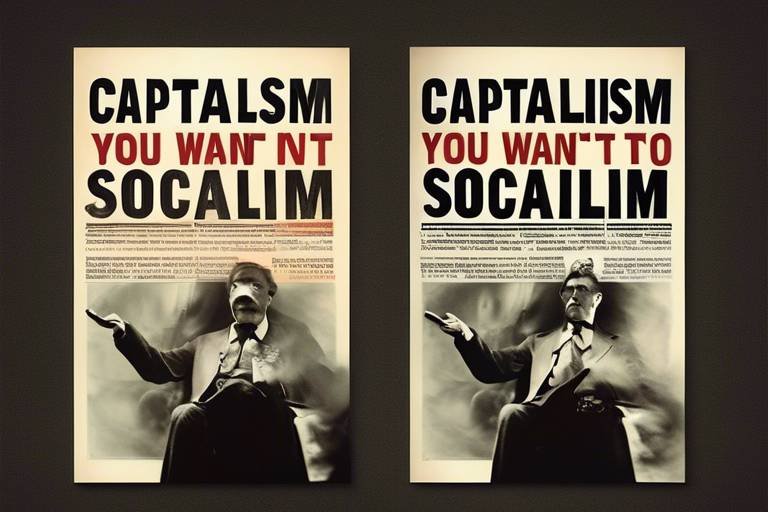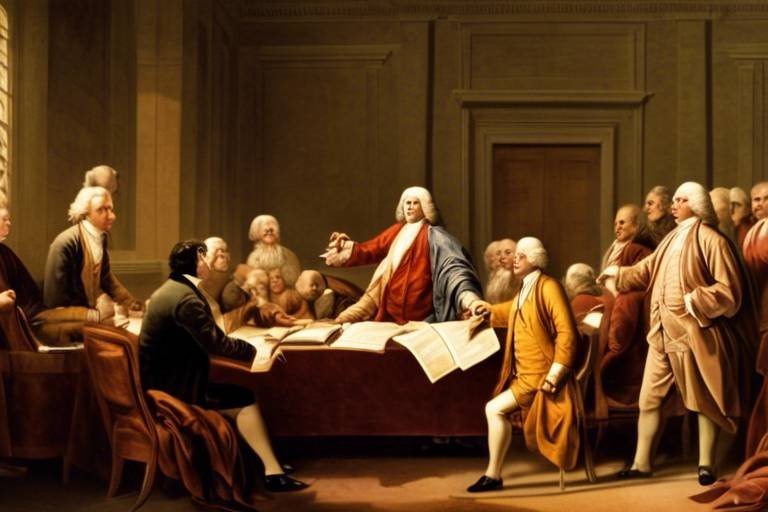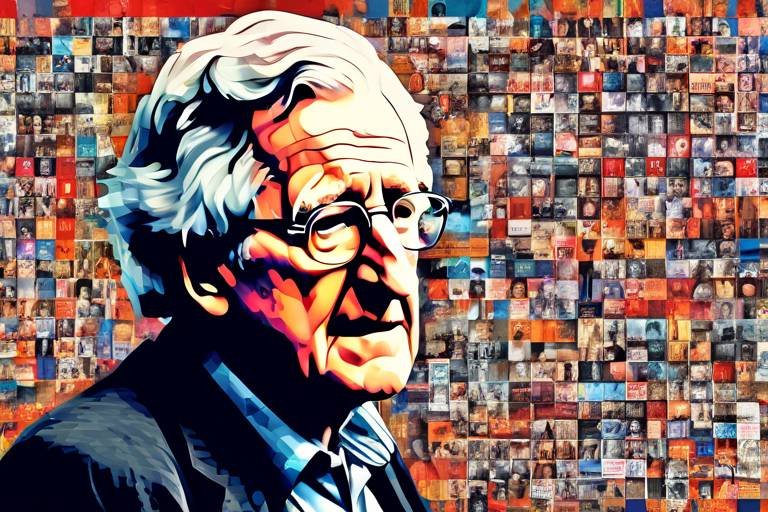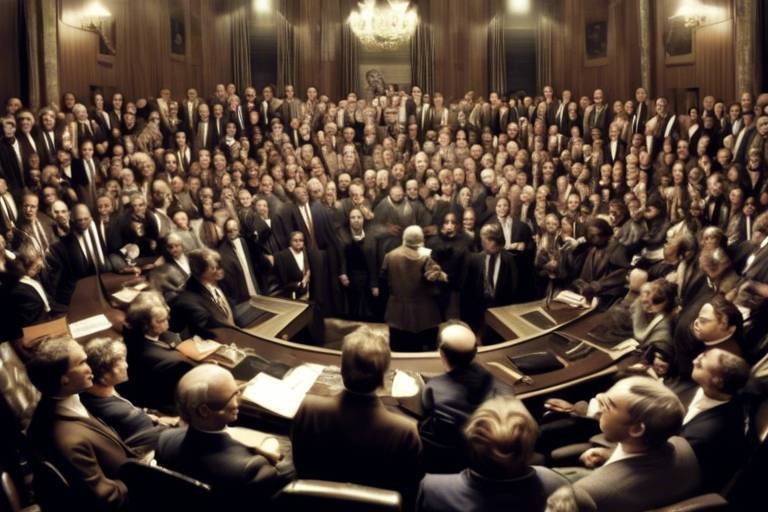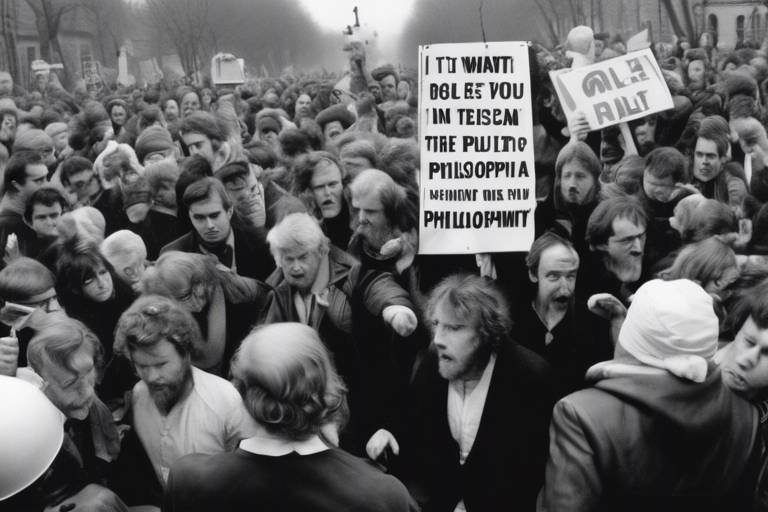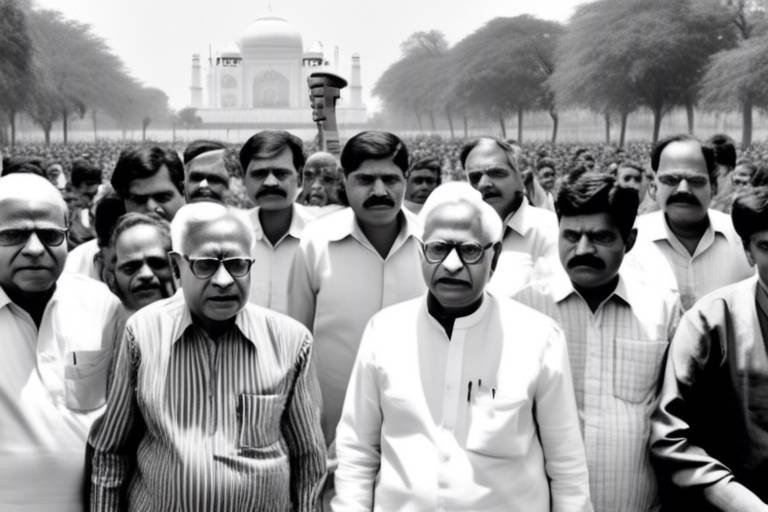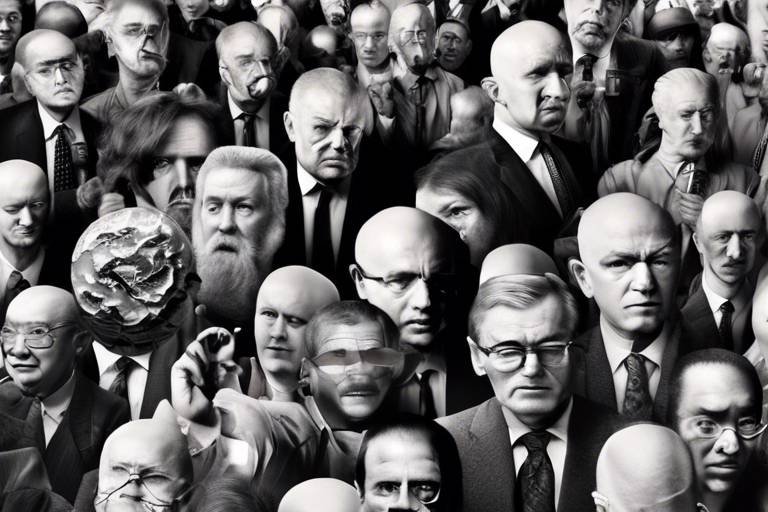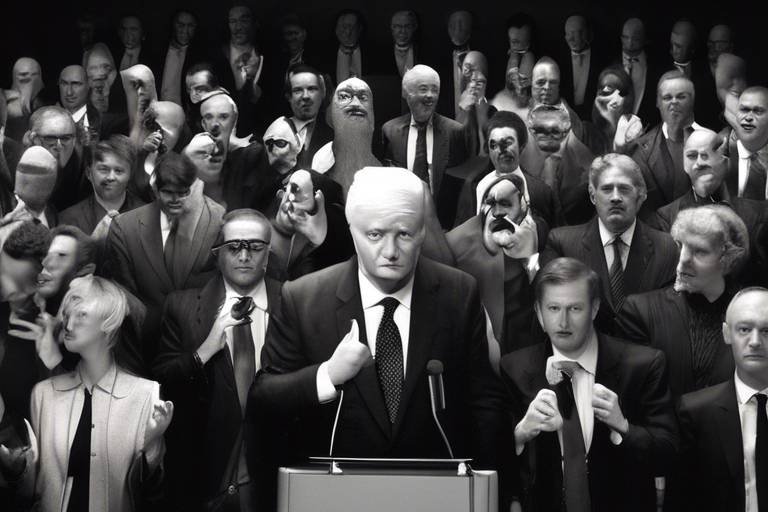Political Psychology - A Philosophical Perspective
In a world where politics often feels like a battleground, understanding the intricate dance between psychology and politics can provide profound insights into human behavior. Political psychology examines how our thoughts, feelings, and perceptions shape our political realities. It dives deep into the human psyche, revealing how our beliefs are not just a reflection of the political landscape but are also significantly influenced by our emotional states and cognitive processes. This intersection of political psychology and philosophy opens up a fascinating dialogue about the motivations behind political decisions, the emotional undercurrents that drive voter behavior, and the philosophical implications of our political ideologies.
Imagine standing in a crowded room, surrounded by people who are passionately discussing the latest political scandal. You can feel the tension in the air, the anger simmering just below the surface, and the fear of what these events might mean for the future. This scenario illustrates how deeply our emotions are intertwined with our political beliefs. The philosophical question arises: are we truly making rational decisions, or are we merely reacting to our feelings? Political psychology seeks to unravel this complex relationship, helping us understand the psychological mechanisms that underlie our political choices.
As we explore this intersection, we must consider how our emotional responses to political events can lead to polarization and division. When we allow our emotions to dictate our beliefs, we risk creating an echo chamber where only our views are validated, and opposing perspectives are dismissed. This phenomenon raises essential questions about the nature of truth in politics and whether we can ever achieve a truly objective understanding of political issues. By examining the philosophical implications of political psychology, we can begin to appreciate the nuances of our political landscape.
In conclusion, the interplay between political psychology and philosophy offers a rich tapestry of insights into the human condition. By understanding the emotional and psychological factors that influence our political behavior, we can foster a more informed and empathetic political discourse. In the following sections, we will delve deeper into specific aspects of political psychology, including the role of emotions, cognitive dissonance, and the impact of identity politics. Each of these elements contributes to a broader understanding of how we navigate the complex world of politics.
- What is political psychology? Political psychology is the study of how psychological factors influence political behavior and decision-making.
- How do emotions affect political opinions? Emotions like fear, anger, and hope can significantly shape our political views and actions, often leading to polarized opinions.
- What is cognitive dissonance? Cognitive dissonance refers to the mental discomfort experienced when holding two contradictory beliefs, often leading individuals to adjust their beliefs to maintain consistency.
- What role does media play in political psychology? Media can reinforce confirmation bias by selectively presenting information that aligns with existing beliefs, shaping public opinion.
- How can we overcome confirmation bias? Strategies such as engaging in open-minded discussions and seeking diverse perspectives can help counteract confirmation bias.

The Role of Emotions in Politics
This article explores the intersection of political psychology and philosophy, examining how psychological principles influence political behavior, decision-making, and the underlying motivations of individuals in political contexts.
Emotions are the invisible puppeteers in the theater of politics, pulling the strings of public opinion and behavior. Just think about it: when was the last time you made a political decision purely based on logic? Most likely, your feelings were involved, whether it was a spark of anger at a policy change or a wave of hope inspired by a charismatic leader. Emotions like fear, joy, and trust can significantly sway voter decisions and ignite political activism. For instance, during times of crisis, fear can mobilize people more effectively than rational arguments. Political campaigns often capitalize on this emotional aspect, crafting messages that resonate deeply with the electorate's feelings.
Moreover, the connection between emotions and political behavior isn't just anecdotal; it’s backed by psychological research. Studies show that voters are more likely to support candidates who evoke positive emotions. A candidate who can instill feelings of optimism and belonging tends to create a loyal following. On the flip side, a campaign steeped in negative emotions—like fear or resentment—can lead to polarization, driving wedges between different groups. This emotional landscape can be visualized in the following table, illustrating how various emotions can impact voter behavior:
| Emotion | Impact on Voter Behavior |
|---|---|
| Fear | Mobilizes action, but can lead to divisiveness |
| Hope | Encourages participation and optimism in change |
| Anger | Can drive turnout but may foster hostility |
| Trust | Builds loyalty and long-term support |
In addition to influencing decisions, emotions also play a crucial role in shaping political discourse. When people engage in discussions about politics, their emotional state can color their interpretations and responses. For example, someone who feels disillusioned may dismiss opposing viewpoints outright, while a person filled with enthusiasm may be more open to dialogue. This emotional volatility can lead to misunderstandings and conflict, particularly in heated political climates.
So, how do we navigate this emotional terrain? Understanding the role of emotions in politics is essential for fostering healthier political discussions. By being aware of our emotional triggers and the emotions of others, we can strive for more constructive dialogues instead of falling into the trap of emotional escalation. After all, politics is not just about policies—it's about people, their feelings, and how those feelings drive their actions.
- How do emotions influence political decision-making?
Emotions can significantly sway how individuals perceive candidates and policies, often leading to decisions based more on feelings than on facts. - What role does fear play in politics?
Fear can mobilize voters but may also create divisiveness, leading to a polarized political landscape. - Can emotions be harnessed for positive political change?
Absolutely! Emotions like hope and trust can inspire collective action and foster a sense of community among voters.

Cognitive Dissonance and Political Beliefs
Cognitive dissonance is a fascinating psychological phenomenon that occurs when individuals experience a conflict between their beliefs and their actions. In the realm of politics, this dissonance can manifest in various ways, particularly when people are confronted with information that contradicts their established political beliefs. Imagine holding a strong belief about a political issue, only to encounter evidence that challenges that belief. How do you reconcile the two? This is where cognitive dissonance comes into play, pushing individuals to either adjust their beliefs or rationalize their existing views to reduce the discomfort.
One of the most intriguing aspects of cognitive dissonance in political contexts is how it drives people to maintain ideological consistency. When faced with contradictory information, individuals often engage in mental gymnastics to protect their beliefs. They might dismiss the new information as biased or unreliable, or they may downplay its significance. This psychological defense mechanism is not just a quirk of the mind; it plays a crucial role in shaping political landscapes. For instance, a voter who strongly supports a particular candidate might ignore or reinterpret negative news about that candidate, clinging to their support as a means of preserving their identity and beliefs.
To illustrate this concept further, let's consider a few common strategies that people use to cope with cognitive dissonance in political beliefs:
- Selective Exposure: Individuals often seek out information that aligns with their existing beliefs while avoiding contradictory viewpoints. This selective exposure reinforces their current stance and helps maintain a sense of ideological purity.
- Rationalization: When confronted with dissonance, individuals might create justifications for their beliefs. For example, they might argue that their candidate's flaws are insignificant compared to the flaws of the opposing candidate.
- Group Reinforcement: People often turn to like-minded individuals for validation. By surrounding themselves with others who share their beliefs, they can find comfort and support, further entrenching their views.
Interestingly, cognitive dissonance can also lead to a phenomenon known as the "backfire effect," where individuals become even more entrenched in their beliefs when confronted with contradictory evidence. Instead of reconsidering their stance, they may double down, leading to greater polarization. This effect is particularly concerning in today's political climate, where misinformation spreads rapidly, and echo chambers are prevalent.
As we navigate the complexities of political beliefs, it's essential to recognize the role of cognitive dissonance in shaping our understanding of the world. By acknowledging this psychological process, we can begin to foster more open and constructive political discussions. Encouraging individuals to confront their biases and engage with opposing viewpoints can help bridge the divide that cognitive dissonance often exacerbates. After all, understanding the psychology behind our beliefs is the first step toward meaningful dialogue and progress in the political arena.
- What is cognitive dissonance? Cognitive dissonance is the mental discomfort experienced when a person holds two or more contradictory beliefs or values, leading them to seek harmony between them.
- How does cognitive dissonance affect political beliefs? It leads individuals to rationalize their beliefs and ignore conflicting information, which can contribute to political polarization.
- What are some strategies to overcome cognitive dissonance? Engaging with diverse perspectives, practicing critical thinking, and fostering open-minded discussions can help individuals address cognitive dissonance.
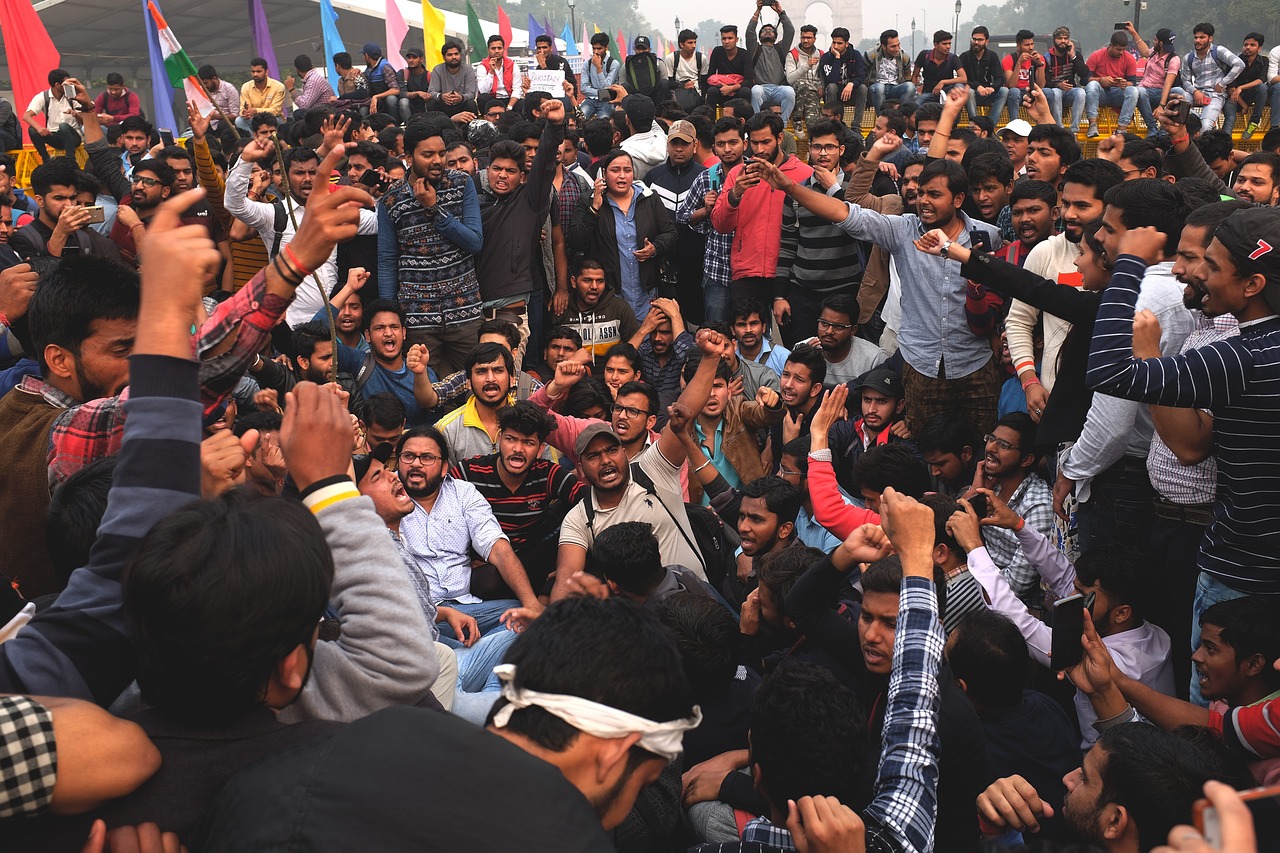
The Influence of Confirmation Bias
Confirmation bias is a fascinating psychological phenomenon that significantly impacts how we engage with political information. Imagine you're at a buffet, and you only fill your plate with dishes you already love, ignoring the new and potentially delicious options. This is precisely how confirmation bias operates in the realm of politics. It’s the tendency to seek out, interpret, and remember information in a way that confirms what we already believe, while conveniently overlooking anything that contradicts those beliefs. This bias can create a feedback loop, reinforcing our existing views and making it increasingly difficult to consider alternative perspectives.
For instance, when political debates arise, individuals often tune into news outlets and social media that align with their views. They may actively search for articles that support their opinions, while dismissing others as biased or unreliable. This selective exposure can lead to a skewed understanding of political issues, as individuals become trapped in echo chambers where their beliefs are constantly validated. It’s not just a matter of preference; it’s a psychological defense mechanism that protects our self-image and worldview.
Furthermore, confirmation bias can manifest in various ways during political discussions. When presented with facts that challenge their beliefs, individuals might react defensively, rationalizing their stance rather than engaging in constructive dialogue. This behavior not only stifles open conversation but also deepens societal divisions. To illustrate this, consider the following table that outlines how confirmation bias influences political engagement:
| Aspect | Impact of Confirmation Bias |
|---|---|
| Information Seeking | Individuals favor sources that align with their beliefs, ignoring opposing viewpoints. |
| Interpretation | Facts are interpreted in a way that supports pre-existing beliefs, often distorting reality. |
| Memory | People are more likely to remember information that confirms their views while forgetting contradictory evidence. |
| Political Discussions | Conversations become polarized, as individuals defend their beliefs rather than engage in meaningful dialogue. |
So, what can be done to mitigate the effects of confirmation bias? Acknowledging its existence is the first step. Educating ourselves about this bias can help us become more aware of our tendencies to seek out information that merely confirms our beliefs. Additionally, actively challenging ourselves to consume a variety of media sources can broaden our understanding of different viewpoints. Engaging in discussions with individuals who hold opposing views can also foster a more nuanced perspective and encourage critical thinking.
Ultimately, overcoming confirmation bias is not just about being open-minded; it's about fostering a more informed and engaged citizenry. By recognizing our biases and striving for a more balanced approach to political information, we can contribute to healthier political discourse and a more cohesive society.
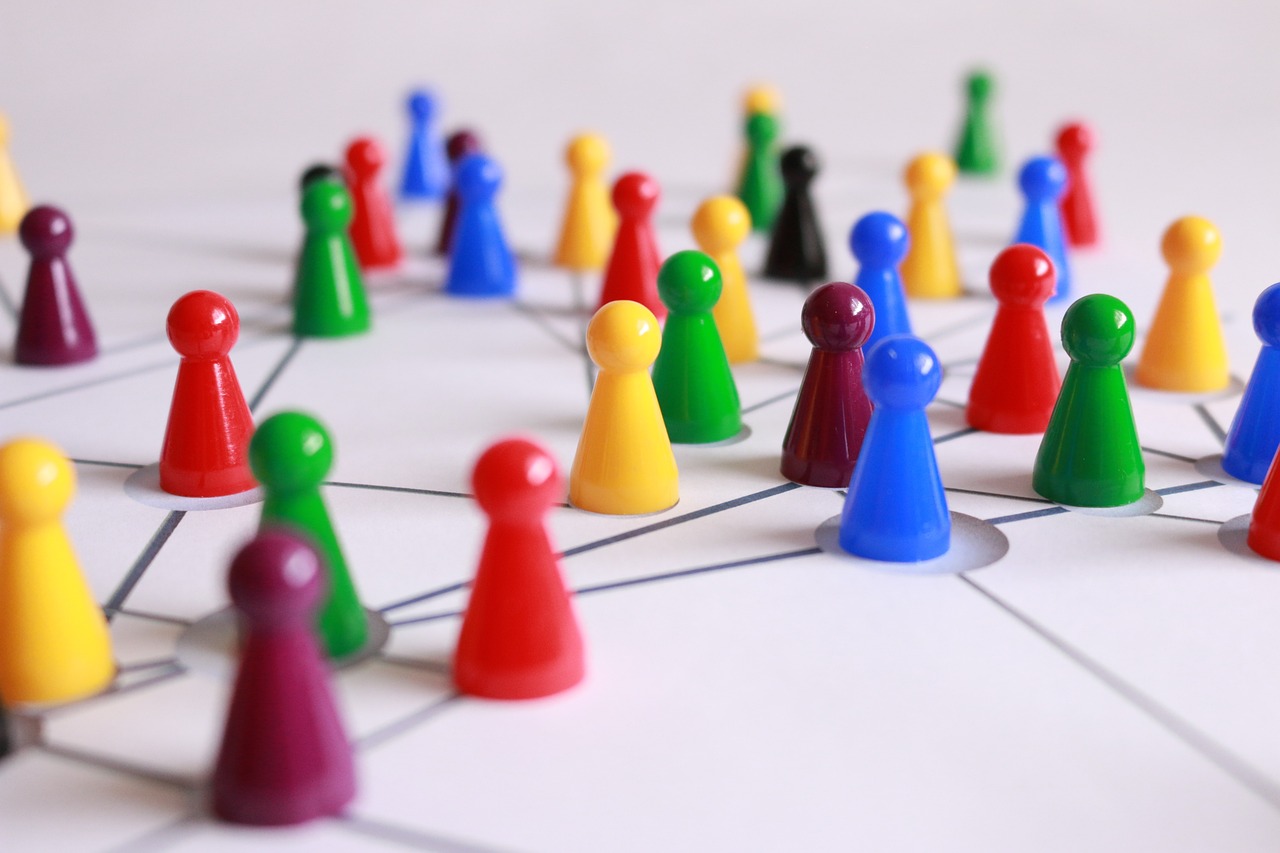
Media's Role in Shaping Bias
The media plays a pivotal role in shaping public opinion and reinforcing biases, often acting as a double-edged sword in the realm of politics. On one hand, it serves as a vital source of information, but on the other, it can perpetuate existing beliefs and create echo chambers. This phenomenon occurs because media outlets tend to curate content that aligns with the preferences of their audience, leading to a cycle where individuals are exposed only to information that confirms their existing views. Have you ever noticed how certain news channels seem to cater to specific political ideologies? This selective coverage not only influences what people think but also how they feel about various political issues.
To understand this better, consider the concept of confirmation bias. When individuals consume news that aligns with their beliefs, they are more likely to accept it as fact while dismissing opposing viewpoints. This is where the media's role becomes crucial. By choosing which stories to highlight and how to frame them, media outlets can significantly impact the public's perception of reality. For instance, a study might show that coverage of a political event varies dramatically depending on the outlet, leading to vastly different interpretations among viewers. This selective presentation can result in polarized opinions, where individuals are convinced of their stance without considering alternative perspectives.
Moreover, the rise of digital media has exacerbated this issue. Social media platforms, with their algorithms designed to maximize engagement, often prioritize sensational content that resonates with users' existing beliefs. This can create a feedback loop, where users are continuously fed information that reinforces their biases, further entrenching their political views. The implications are profound: a society where people are less likely to engage in constructive dialogue and more likely to retreat into their ideological corners.
To illustrate the media's influence, consider the following table that outlines how different media outlets approach the same political event:
| Media Outlet | Framing of Event | Target Audience |
|---|---|---|
| Outlet A | Focuses on the positive outcomes, emphasizing unity. | Moderate to liberal audience |
| Outlet B | Highlights controversies and potential failures. | Conservative audience |
| Outlet C | Provides a balanced view, presenting multiple perspectives. | Neutral audience |
This table exemplifies how different media outlets can shape the narrative surrounding the same event, leading to varied interpretations and reinforcing biases among their audiences. Therefore, it's essential for consumers of news to approach media critically, questioning not just the content presented but also the motivations behind it. Are media outlets genuinely seeking to inform, or are they more interested in catering to their audience's preconceived notions?
In conclusion, the media's role in shaping bias is significant and multifaceted. It not only influences individual perceptions but also has broader implications for political discourse and societal cohesion. As consumers of information, we must strive to seek out diverse perspectives and challenge our own biases, fostering a more informed and engaged citizenry.
- How does media bias affect public opinion?
Media bias can skew public perception by selectively highlighting certain facts while downplaying others, leading to a misinformed electorate. - What can individuals do to combat media bias?
Engaging with a variety of news sources and critically analyzing the information presented can help individuals form a more balanced view. - Are there specific types of media more prone to bias?
Yes, both traditional outlets and social media platforms can exhibit bias, often depending on their target audience and business model.
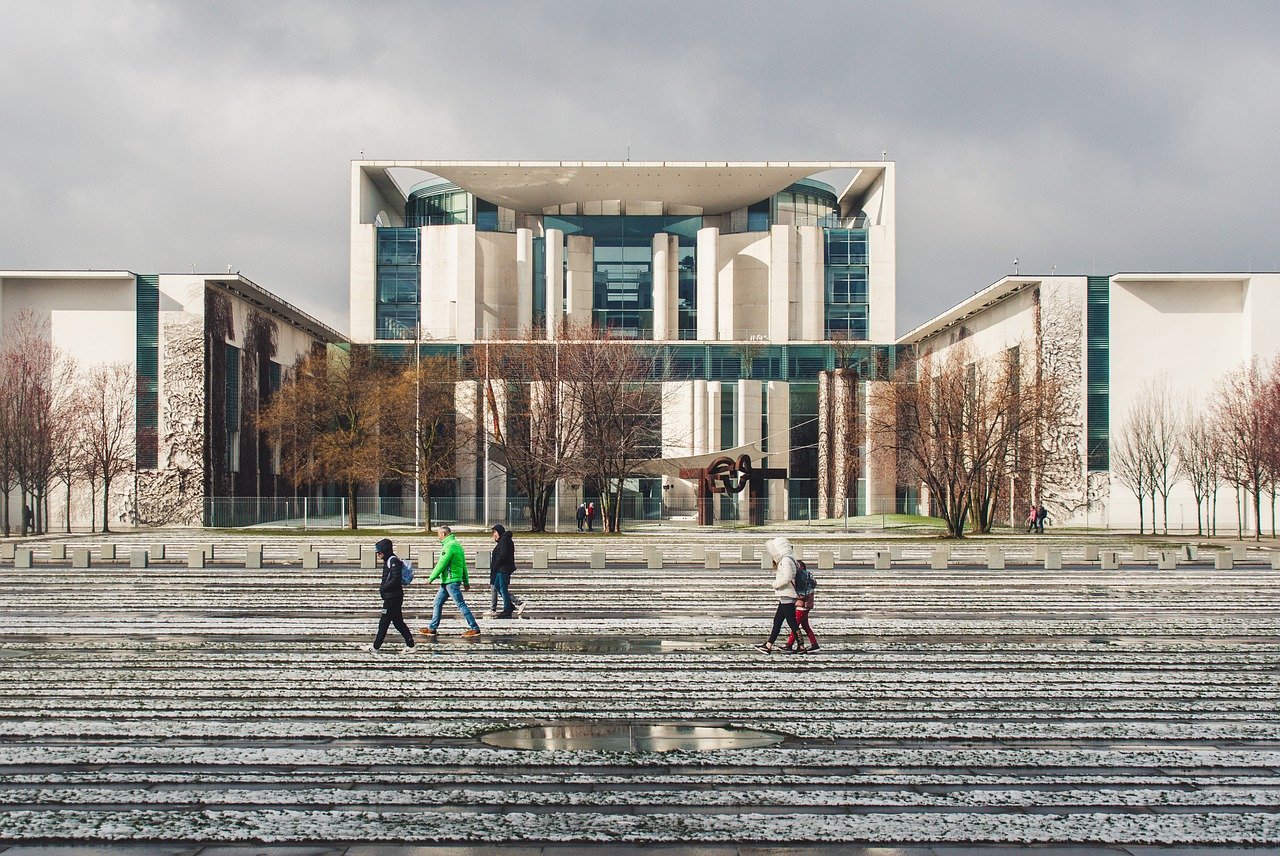
Overcoming Confirmation Bias
Overcoming confirmation bias is crucial for fostering a more informed and open political discourse. This bias often leads us to only seek out information that aligns with our pre-existing beliefs, creating an echo chamber that can stifle critical thinking and understanding. So, how can we break free from this mental trap? Here are some effective strategies:
- Engage with Diverse Perspectives: Actively seek out opinions and information that challenge your beliefs. This can be as simple as following different news outlets or engaging in conversations with people who hold opposing views.
- Practice Reflective Thinking: Take a step back and reflect on your thought processes. Ask yourself why you believe what you do and whether there is evidence that contradicts your views.
- Encourage Open Dialogue: Create spaces where political discussions can happen without hostility. Encourage respectful debates that allow for differing opinions to be voiced and considered.
Implementing these strategies can help individuals recognize their own biases and become more receptive to new information. It’s essential to understand that breaking down confirmation bias isn’t just about being right or wrong; it’s about cultivating a richer understanding of the complex world we live in. Engaging with diverse perspectives can be enlightening, much like adding colors to a monochrome painting—each hue adds depth and dimension to the overall picture.
Moreover, educational initiatives can play a significant role in overcoming confirmation bias. Schools and universities should emphasize critical thinking and media literacy, equipping students with the tools they need to navigate the often turbulent waters of political information. When individuals learn to analyze sources critically and question their own assumptions, they become more adept at engaging in meaningful political discourse.
In addition, technology can be both a friend and a foe in the battle against confirmation bias. While algorithms often curate content that aligns with our interests, there are also tools and platforms designed to promote diverse viewpoints. By leveraging these technologies, we can expose ourselves to a broader range of ideas and challenge our biases more effectively.
Ultimately, overcoming confirmation bias is a journey that requires patience and effort. It’s about cultivating a mindset that values curiosity over certainty, and understanding that our beliefs are not static but can evolve with new experiences and information. By committing to this journey, we not only enrich our own understanding but also contribute to a healthier political environment where dialogue and understanding can flourish.
Q1: What is confirmation bias?
A1: Confirmation bias is the tendency to search for, interpret, and remember information in a way that confirms one's pre-existing beliefs or hypotheses.
Q2: How does confirmation bias affect political discourse?
A2: Confirmation bias can lead to polarized views, as individuals may only engage with information that supports their beliefs, hindering constructive dialogue and understanding.
Q3: What can I do to minimize my own confirmation bias?
A3: Engage with a variety of perspectives, practice reflective thinking, and encourage open dialogue with others to challenge your own beliefs and assumptions.
Q4: Is confirmation bias only a problem in politics?
A4: No, confirmation bias can affect various areas of life, including personal relationships, education, and professional environments, wherever individuals hold strong beliefs.

The Psychology of Political Ideology
Political ideology is not just a collection of beliefs; it's a complex tapestry woven from our personality traits, cognitive styles, and even our emotional responses. Have you ever wondered why some individuals lean towards liberalism while others embrace conservatism? This divergence often stems from deep-seated psychological predispositions. Understanding these underlying factors can provide profound insights into the political landscape.
At the core of political ideology lies the concept of cognitive styles. These styles dictate how we process information, make decisions, and ultimately, how we align ourselves politically. For instance, individuals with a more analytical cognitive style may gravitate towards ideologies that emphasize logic and empirical evidence, while those with a intuitive cognitive style might resonate more with ideologies that appeal to emotions and personal values. This difference can lead to contrasting political affiliations, creating a vibrant, albeit polarized, political environment.
Moreover, personality traits play a significant role in shaping our political ideologies. Research suggests that traits such as openness to experience and conscientiousness can heavily influence one’s political leanings. For example, individuals high in openness are often more receptive to progressive ideas and change, while those who score high in conscientiousness may prefer traditional values and stability. This relationship between personality and political ideology is crucial for understanding why certain groups may clash over fundamental issues.
Interestingly, the interplay between our psychological makeup and political ideology can also be viewed through the lens of emotional responses. Emotions like fear and anger can significantly sway our political beliefs and decisions. For instance, fear may lead individuals to support more authoritarian political figures who promise security, while anger can drive people to advocate for radical change. These emotional triggers can create a feedback loop, reinforcing existing ideologies and making it challenging to engage in constructive political discourse.
To illustrate the relationship between personality traits and political ideology, consider the following table:
| Personality Trait | Political Ideology |
|---|---|
| Openness to Experience | Progressive/Liberal |
| Conscientiousness | Conservative |
| Agreeableness | Socially Liberal |
| Neuroticism | Authoritarian |
As we delve deeper into the psychology of political ideology, it becomes evident that our beliefs are not merely a matter of choice; they are intricately linked to who we are as individuals. This understanding can pave the way for more empathetic political discussions, as recognizing the psychological roots of our ideologies allows us to appreciate the diverse perspectives that shape our society.
In conclusion, the psychology of political ideology is a fascinating domain that combines elements of personality, cognition, and emotion. By exploring these connections, we can better understand ourselves and others in the political arena, fostering a more inclusive and respectful political dialogue.
- What factors influence political ideology? Political ideology is influenced by personality traits, cognitive styles, emotional responses, and social environments.
- Can political ideology change over time? Yes, political ideologies can evolve due to personal experiences, changes in social context, or shifts in societal norms.
- How does understanding political psychology help in political discussions? Understanding political psychology fosters empathy and open-mindedness, allowing for more constructive and respectful political discourse.

Identity Politics and Group Dynamics
In today’s political landscape, identity politics has become a buzzword, often sparking heated debates and discussions. But what exactly does it mean? At its core, identity politics refers to the way individuals align themselves with specific social groups based on shared characteristics such as race, gender, sexuality, or religion. These affiliations can significantly shape political behavior and influence the decisions individuals make at the polls. It's fascinating to see how our identities can serve as both a shield and a sword in the political arena, offering protection while also fostering division.
When we talk about group dynamics, we’re diving into the complex interactions that occur within these social groups. Each group comes with its own set of norms, values, and expectations, which can either unite members or create rifts. For instance, consider how a shared experience, such as facing discrimination, can galvanize a community to mobilize for change. On the flip side, these same shared experiences can lead to a sense of exclusivity, where individuals outside the group feel alienated or marginalized. This phenomenon can create a cycle of us vs. them mentality, which can be detrimental to broader political discourse.
Moreover, the impact of identity politics extends beyond individual behavior; it can shape entire political movements. Take the civil rights movement, for example. It was driven largely by a collective identity that sought to address systemic injustices faced by African Americans. This collective identity not only unified individuals but also helped formulate a clear political agenda that resonated with many. However, as we delve deeper into identity politics, we must recognize its potential pitfalls. While it can empower marginalized groups, it can also lead to polarization and conflict, particularly when different identity groups vie for attention and resources.
To better understand how identity politics operates, we can look at some key elements that influence group dynamics:
- Shared Experiences: Common struggles or successes can strengthen group bonds.
- Group Norms: Expectations within the group can dictate behavior and political engagement.
- External Perception: How outsiders view the group can influence its internal dynamics and political strategies.
As we navigate through the complexities of identity politics, it’s crucial to consider the implications of social identity theory. This theory posits that individuals derive a sense of self from their group memberships, which can profoundly affect their political attitudes. For instance, someone who identifies strongly with their ethnic group may prioritize policies that benefit that community over broader societal issues. This doesn’t mean that individuals are incapable of seeing the bigger picture; rather, it underscores how deeply ingrained our identities can be in shaping our political perspectives.
In conclusion, identity politics and group dynamics are intricately intertwined, influencing everything from individual voting behavior to the formation of political movements. As we continue to explore this topic, it’s essential to foster dialogue that encourages understanding and cooperation across different identity groups. Only then can we hope to bridge the divides that often characterize our political discourse.
- What is identity politics? Identity politics refers to political positions based on the interests and perspectives of social groups with which people identify.
- How does group dynamics influence political behavior? Group dynamics can affect how individuals within a group interact, share ideas, and mobilize for political action, often leading to stronger collective advocacy.
- Can identity politics lead to polarization? Yes, while it can empower marginalized groups, it can also create divisions between different identity groups, leading to increased polarization.

Social Identity Theory
Social Identity Theory (SIT) is a fascinating framework that delves into how our identities are shaped by the groups we belong to. It suggests that a significant part of our self-concept is derived from our membership in social groups, whether they be based on ethnicity, religion, political affiliation, or any other defining characteristic. This theory was developed by Henri Tajfel and John Turner in the 1970s and has since provided profound insights into the dynamics of group behavior and intergroup relations.
At its core, SIT posits that individuals categorize themselves and others into various social groups, which can lead to a sense of belonging and identity. This categorization can be both positive and negative. For instance, when people identify strongly with a group, they often experience a boost in self-esteem, as they perceive their group as superior to others. This is known as in-group favoritism, where members of a group tend to favor their own group over outsiders. However, this can also result in out-group discrimination, which can foster division and conflict.
To illustrate this concept, consider a political context where individuals align themselves with a particular party. Their identity as a member of that party can shape their political opinions and behaviors significantly. For example, party affiliation might influence how they interpret political news, engage in discussions, and even how they vote. The emotional investment in their group can lead to a strong defense of their beliefs, often at the expense of considering opposing viewpoints. This is particularly relevant in today's highly polarized political climate, where group identities often overshadow individual reasoning.
Furthermore, Social Identity Theory highlights the importance of social comparison. Individuals often evaluate their group against others, leading to a hierarchy of groups based on perceived status or success. This comparative process can intensify group loyalty and hostility towards rival groups. For example, during elections, supporters of one candidate may downplay the achievements of opposing candidates to elevate their own choice, reinforcing their group identity.
Moreover, the implications of SIT extend beyond individual behavior to societal dynamics. In a diverse society, the interplay of multiple identities can lead to complex political landscapes. For instance, when various social groups vie for recognition and power, it can result in both collaboration and conflict. The challenge lies in navigating these identities without letting them spiral into divisive politics.
In summary, Social Identity Theory offers a lens through which we can understand the intrinsic motivations behind political behavior. By recognizing how our group affiliations influence our perceptions and actions, we can better appreciate the complexities of political discourse and the potential for both unity and division within society.
- What is Social Identity Theory?
Social Identity Theory explains how individuals derive a sense of self from the groups they belong to, influencing their behavior and attitudes towards others.
- How does SIT relate to political behavior?
SIT illustrates how group identities, such as political affiliations, shape individuals' opinions, voting behavior, and interactions with others.
- Can SIT lead to conflict between groups?
Yes, in-group favoritism can create hostility towards out-groups, leading to polarization and conflict, especially in political contexts.
- How can we mitigate the negative effects of SIT?
Encouraging open dialogue, promoting understanding between groups, and emphasizing common goals can help reduce division and foster cooperation.
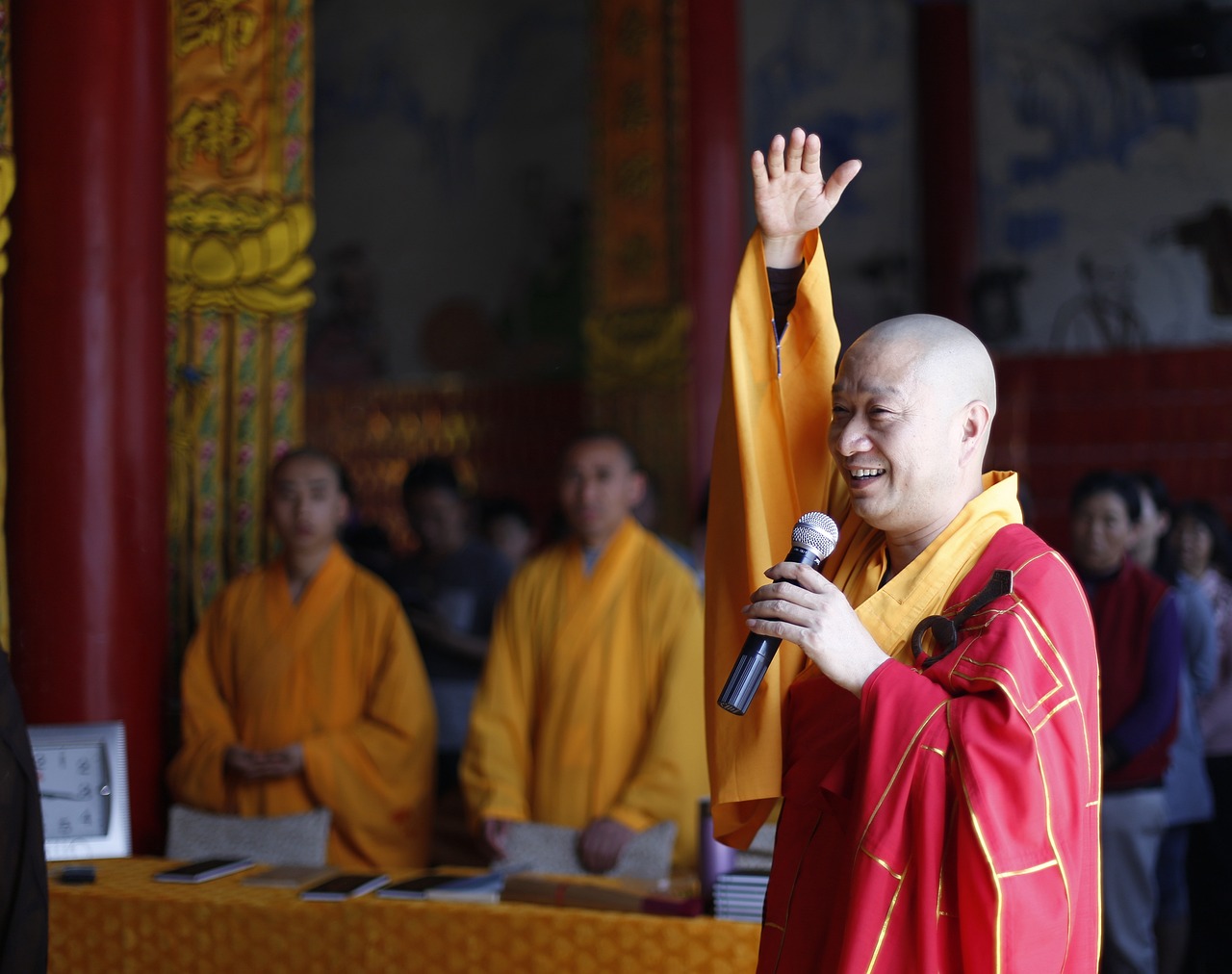
Polarization and In-Group Bias
Political polarization has become a defining feature of modern society, creating an environment where individuals become increasingly entrenched in their beliefs. This phenomenon is often exacerbated by in-group bias, a psychological tendency that leads people to favor their own group while viewing outsiders with skepticism or hostility. Imagine a sports team: fans are often fiercely loyal to their team, celebrating victories and denouncing rivals. Similarly, in politics, individuals rally around their party or ideology, creating a tribal mentality that can distort perceptions and foster division.
In-group bias manifests in various ways, influencing how we interact with others and interpret information. For instance, individuals may:
- Exhibit favoritism towards members of their own political party.
- Dismiss or devalue opinions from opposing parties.
- Engage in echo chambers, where only like-minded views are shared and reinforced.
This bias can lead to a dangerous cycle of polarization, where individuals become more extreme in their beliefs. As people retreat into their ideological corners, they often stop listening to opposing viewpoints, creating a landscape where constructive dialogue becomes increasingly rare. This is not just a theoretical concern; studies have shown that political polarization can lead to significant societal consequences, including increased hostility, reduced cooperation, and even violence.
Moreover, the impact of social media cannot be overlooked. Platforms like Twitter and Facebook often amplify in-group bias by curating content that aligns with users’ preferences. This creates a feedback loop, where users are continuously exposed to information that reinforces their existing beliefs while being shielded from alternative perspectives. As a result, the lines between fact and opinion blur, and the potential for understanding across political divides diminishes.
To counteract polarization and in-group bias, it's essential to foster environments that encourage open dialogue and critical thinking. Here are some strategies that can help:
- Encourage Diverse Perspectives: Actively seek out and engage with individuals who hold different political views. This can challenge assumptions and broaden understanding.
- Promote Media Literacy: Equip individuals with the skills to critically evaluate information sources, helping them recognize bias in media coverage.
- Focus on Common Goals: Highlight shared values and objectives that transcend political affiliations, fostering cooperation and unity.
In conclusion, addressing polarization and in-group bias requires a concerted effort from individuals, communities, and institutions. By recognizing the psychological underpinnings of these phenomena, we can begin to bridge divides and foster a more inclusive political discourse.
Q: What is political polarization?
A: Political polarization refers to the growing ideological distance between political parties and their supporters, leading to increased division and hostility.
Q: How does in-group bias affect political behavior?
A: In-group bias leads individuals to favor their own group’s beliefs and members, often resulting in dismissive attitudes towards opposing groups.
Q: What role does social media play in political polarization?
A: Social media can amplify polarization by curating content that aligns with users’ beliefs, creating echo chambers that reinforce existing views.
Q: How can we overcome political polarization?
A: Encouraging diverse perspectives, promoting media literacy, and focusing on common goals are effective strategies to mitigate polarization.
Frequently Asked Questions
- What is political psychology?
Political psychology is an interdisciplinary field that examines how psychological principles affect political behavior, decision-making, and individual motivations in political contexts. It merges insights from psychology, political science, and philosophy to understand how emotions and cognition influence politics.
- How do emotions impact political decisions?
Emotions like fear, anger, and hope play a crucial role in shaping political opinions and behaviors. For instance, fear can drive voter turnout during crises, while hope can inspire movements for change. Understanding these emotional drivers helps explain why people align with certain political ideologies or candidates.
- What is cognitive dissonance in politics?
Cognitive dissonance refers to the mental discomfort experienced when holding conflicting beliefs or attitudes. In political contexts, individuals often encounter information that contradicts their beliefs, leading them to either adjust their views or rationalize their existing beliefs to maintain ideological consistency.
- What is confirmation bias and how does it work?
Confirmation bias is the tendency to seek out, interpret, and remember information that confirms one's pre-existing beliefs while ignoring contradictory evidence. This bias can significantly affect how individuals process political information, leading to polarized views and reinforcing existing ideologies.
- How does the media influence confirmation bias?
The media plays a pivotal role in shaping confirmation bias by curating the information that audiences receive. Selective coverage can reinforce existing political beliefs, making it challenging for individuals to encounter diverse perspectives and fostering a more polarized political landscape.
- What strategies can help overcome confirmation bias?
To counter confirmation bias, individuals can practice open-mindedness by actively seeking out diverse viewpoints, engaging in constructive discussions, and critically evaluating their sources of information. Encouraging critical thinking skills can also promote more informed political discourse.
- How do personality traits influence political ideology?
Political ideologies are often linked to underlying personality traits and cognitive styles. For example, individuals who score high on traits like openness to experience may lean towards liberal ideologies, while those with higher conscientiousness may align with conservative views. Understanding these connections can shed light on why people hold certain political beliefs.
- What is identity politics?
Identity politics refers to political positions and movements that are based on the interests and perspectives of social groups with which individuals identify. It highlights how group identities, such as race, gender, and sexuality, can shape political behavior and influence societal dynamics.
- How does social identity theory relate to politics?
Social Identity Theory posits that individuals derive a sense of self from their group memberships. In political contexts, this theory helps explain how belonging to specific social groups can influence political attitudes and behaviors, leading to in-group favoritism and out-group discrimination.
- What is political polarization and why is it a concern?
Political polarization refers to the growing divide between opposing political ideologies, often accompanied by an increase in hostility towards the opposing side. This division can hinder constructive dialogue, create echo chambers, and exacerbate societal tensions, making it crucial to address the underlying psychological factors contributing to this phenomenon.


